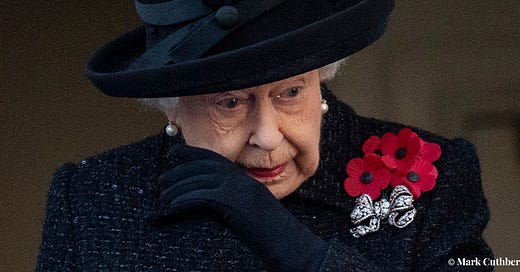An 'idiot' PM and the appeal of 'four-legged dictators'
Two new biographies offer revelations about the most enigmatic of monarchs

Last weekend, I got up extra early to watch the BBC coverage of the Remembrance Sunday ceremony in London via a subscription service on my laptop. This year, it fell on November 10, exact…
Keep reading with a 7-day free trial
Subscribe to WRITE ROYALTY by Patricia Treble to keep reading this post and get 7 days of free access to the full post archives.



